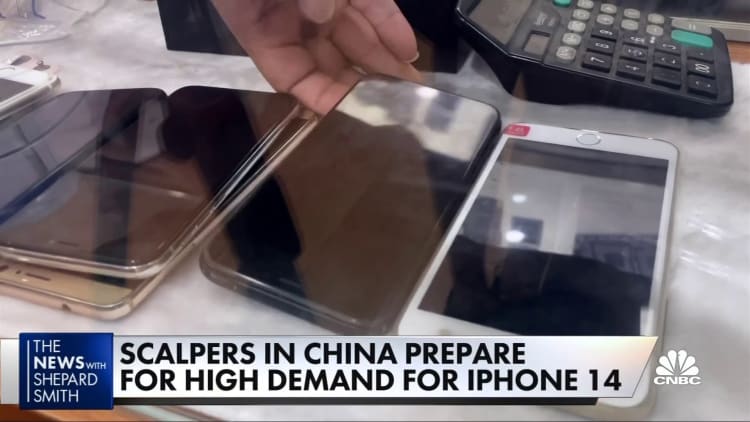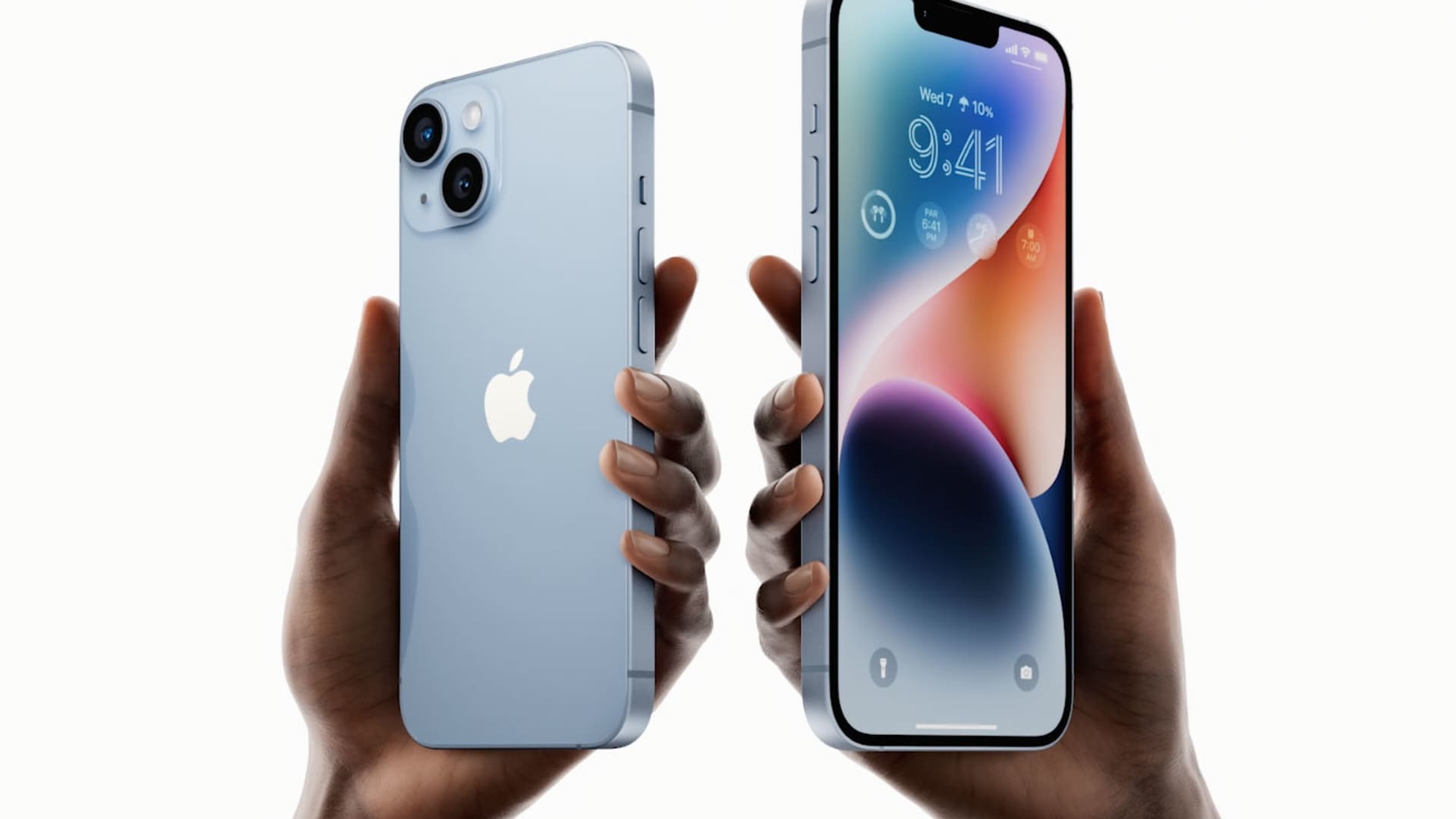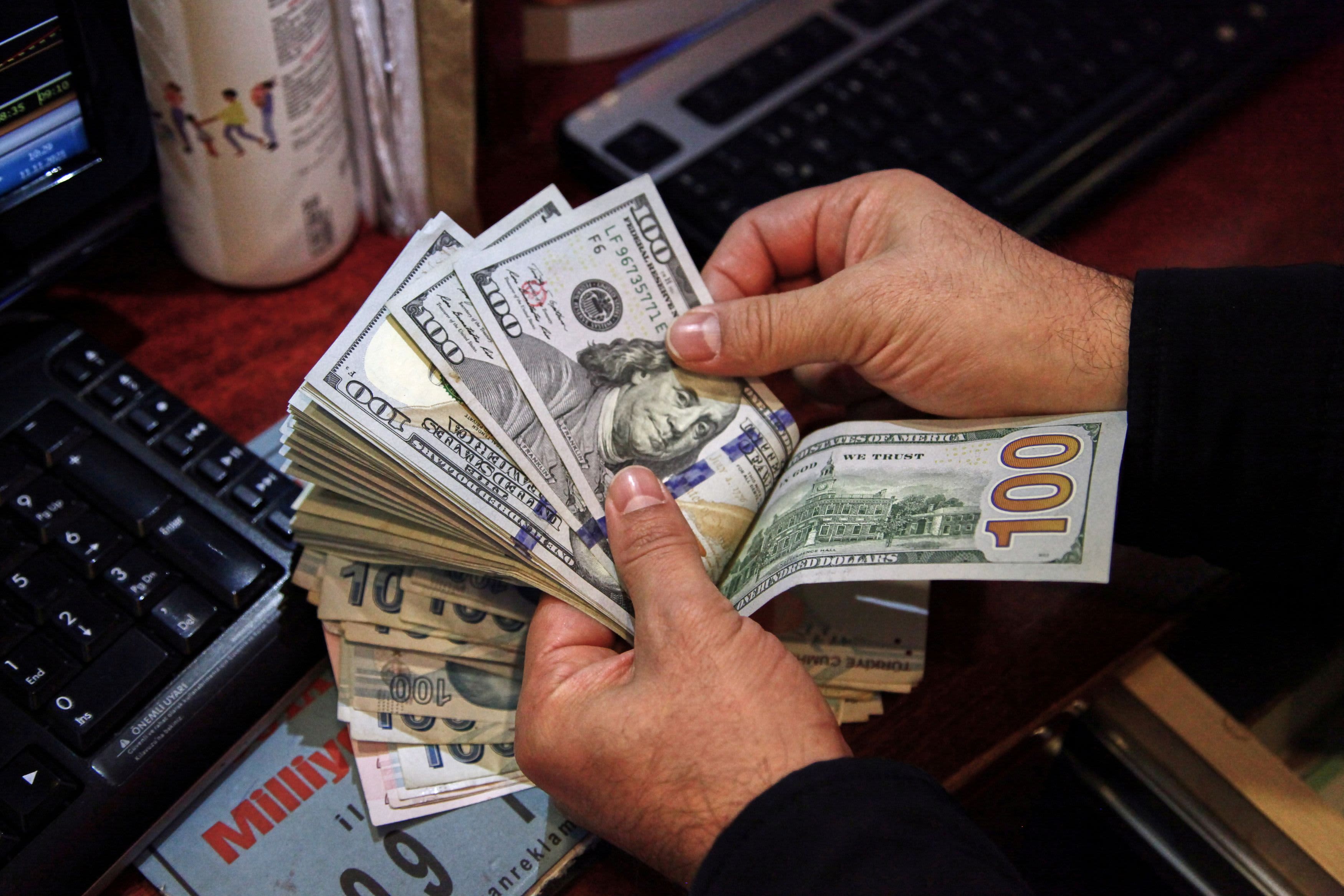Apple hiked the price of the iPhone 14 series in a number of key markets, though it was unchanged in the United States.
With rampant inflation persisting and a global recession on the horizon, all eyes were on how Apple priced its main product during the Cupertino giant’s big event on Wednesday, where it revealed four iPhone 14 models.
related investing news
One of the biggest surprises was that in the United States, Apple kept the prices of the iPhone 14 series the same as what it was charging for the equivalent iPhone 13 model.
The iPhone 14 base model will start at $799, the same amount that it initially charged for last year’s iPhone 13. The highest price iPhone 14 Pro Max starts at $1,099, the same as the iPhone 13 Pro Max.
However, Apple has raised the price in some of its biggest markets globally.
The latest Apple smartphones will be a test of global consumer appetite for new electronics and put U.S. tech giant’s brand power on trial.
Here are some comparisons of the iPhone 14 base model versus the iPhone 13 in various countries.
U.K.
- iPhone 13: £779
- iPhone 14: £849
- £70 price increase ($80)
Australia
- iPhone 13: 1,349 Australian dollars
- iPhone 14: 1,399 Australian dollars
- 50 Australian dollars price increase ($33)
Japan
- iPhone 13: 98,800 Japanese yen
- iPhone 14: 119,800 Japanese yen
- 21,000 Japanese yen price increase ($146)
Germany
- iPhone 13: 899 euros
- iPhone 14: 999 euros
- 100 euro price increase ($100)
Other models have steeper price increases. For example, the iPhone 14 Pro Max in the U.K. is £150 more expensive than the equivalent last year’s model.
Analysts said part of the reason behind the rises could be increasing costs of components and the appreciation of the U.S. dollar versus other currencies in the markets where Apple has hiked prices.
China iPhone price remains the same
Apple kept the price of the iPhone the same in mainland China, one of its most important markets. Apple’s greater China revenue segment, which includes the mainland, Hong Kong and Taiwan, was its third-biggest region by sales in the second quarter of the year.
Apple’s iPhone 14 is priced at 5,999 Chinese yuan ($862), with the Pro Max starting at 8,999 yuan.
China has seen a resurgence of Covid this year. Authorities are sticking to their “zero-Covid” policy, which has led to lockdowns of major cities including the financial metropolis of Shanghai and production hub of Chengdu.
That has hurt the economy and dampened consumer appetite.

Market research firm IDC expects the Chinese smartphone market to contract by 13% this year, falling below 300 million device shipments for the first time since 2012. That could be one reason Apple has not changed its iPhone pricing in China.
“I won’t be surprised if part of the rationale to keep prices flat there is to sustain demand in such a difficult environment, and in such a strategically important market for Apple at that,” Bryan Ma, technology industry analyst at IDC, told CNBC.
Apple continues to find success in China, particularly in the higher-priced premium segment of the market.
Apple held a 70% market share in the $600-plus smartphone segment in China in the second quarter, up from 58% in the first quarter, IDC said. Much of that can be attributed to the demise of Huawei, whose smartphone business has been hit by U.S. sanctions, leaving a gap for Apple to fill.
“Keeping prices flat helps Apple to retain its user base and fortify its position in China,” Ma said.


